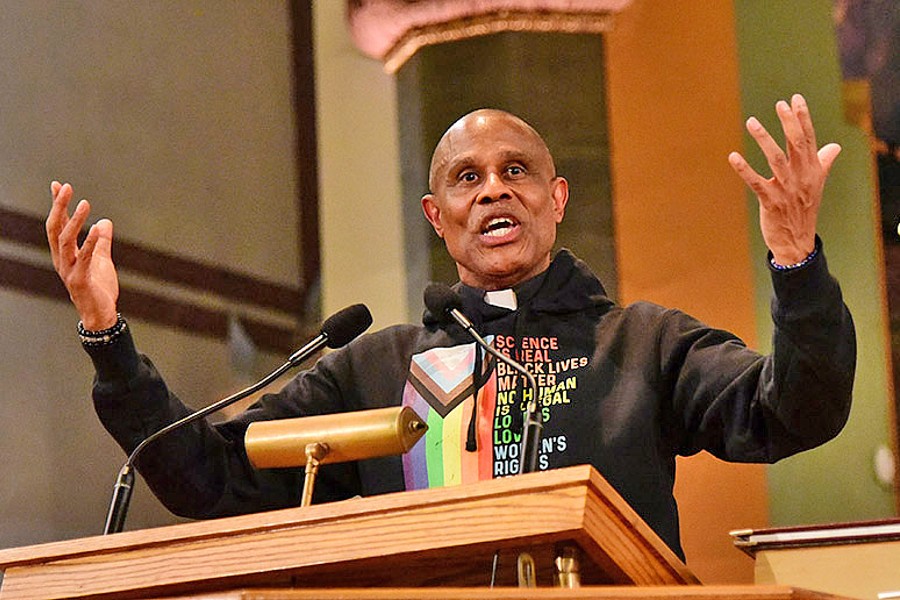
This past spring, Campus Ministry and LGBT Student Services (LGBTSS) sponsored four Loyola Marymount University students and two staff members to participate in the Ignatian Q Conference at Fordham University in New York.
This conference, founded in 2014 at Fordham, has been hosted across the country by Association of Jesuit Colleges and Universities (AJCU) schools and 2023 marked its first return since the pandemic. The conference focuses on creating community, developing spirituality, and affirming humanity for LGBTQ+ students at Jesuit schools.
Students and staff represented 14 Jesuit institutions at this year’s conference. Keynote speakers included Bryan Massingale, S.T.D., a Catholic priest and the James and Nancy Buckman Chair in Applied Christian Ethics at Fordham University; Joan Garry, a nationally recognized LGBT activist who led what was formerly known as the Gay & Lesbian Alliance Against Defamation; and Jim Martin, S.J., a priest and editor of American Media.
Stuart Moskovitz, LMU’s director of LGBTSS, was part of a discussion where panelists from various religious affiliations and identities addressed the intersectionality of faith and identity. Moskovitz reflected on the panel by sharing, “For me, the most memorable part of being on the panel was seeing how attendees – students, staff, and faculty – would snap their fingers when they resonated with something one of the panelists shared, regardless of their own religious affinity.” Moskovitz added, “And that showed me that there’s a lot of overlap in interfaith. I think when students recognize we all are connected with similar thoughts and processes, we’re able to learn from each other. It really struck me how willing students were to learn from each other and be in community to build connections in a place where people could bring their full selves into the space.”
The conference allowed students to connect with each other and with staff and faculty from other Jesuit institutions and learn what is happening on campuses across the country. Focus was given to types of programming that students could bring back to share with the LMU community. Students also got to explore what resources are offered on campuses and share some of the resources that LMU offers to students that may not be available at other campuses. Students from other institutions asked lots of questions of Moskovitz about the LGBTSS office and how the program was built on LMU’s campus; he was able to share how the office and its resources have been built out of empowerment. “At LMU, we wanted student identities to be seen, focused, heard, and valued,” said Moskovitz.
Chris de Silva, campus minister for music and liturgy from Campus Ministry, attended this conference for the first time and felt that it offered an opportunity to learn. “I was inspired by a growing community of courageous queer students of faith, and those of no faith, who are willing to be open and visible to explore more about the intersection of faith, sexual, and gender identities,” said de Silva. “These brave voices are essential to conversations about diversity and inclusion. From all our conversations, breakout sessions, keynote sessions, and meals together, I felt a sense of unconditional acceptance of who we are and are meant to be.”
The weekend began with a keynote at the Church of St. Paul the Apostle, by Massingale, who affirmed that “we are all loved” and that “we are all sacred.” “This is something that most of us know yet fail to accept,” said de Silva. “He referred to Langston Hughes’ poem ‘Dreams’ and urged us to hold fast to our queer dreams as he continues to do through years of discerning his identity as a Black and gay priest. He also warned us how queer dreams die when we fall victim to negative narrative targeted at the LGBTQIA+ community.” Staff and faculty members from Jesuit institutions who attended the Ignatian Q conference are currently working to build a work group that will meet monthly to stay connected with the goal to build a roadmap to highlight what is happening at campuses across the country.



